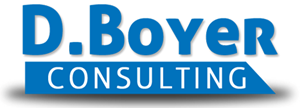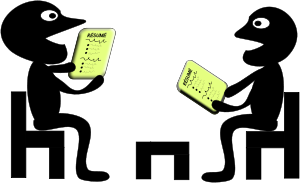Business is mostly conducted via email or phone communications.
Office hours 10:00 a.m. to 6:00 p.m, Mon. - Thurs., and 10:00 a.m. to 2:00 p.m. on Fridays.
SEND EMAIL INQUIRIES DIRECTLY TO:
Dawn.Boyer@me.com
Business is mostly conducted via email or phone communications.
Office hours 10:00 a.m. to 6:00 p.m, Mon. - Thurs., and 10:00 a.m. to 2:00 p.m. on Fridays.
SEND EMAIL INQUIRIES DIRECTLY TO:
Dawn.Boyer@me.com
Business is mostly conducted via email or phone communications.
Office hours 10:00 a.m. to 6:00 p.m, Mon. - Thurs., and 10:00 a.m. to 2:00 p.m. on Fridays.
SEND EMAIL INQUIRIES DIRECTLY TO:
Dawn.Boyer@me.com
Answering the Three Most Important Job Interview Questions
April 3rd, 2014 by Dawn Boyer
Answering the three most important job interview questions.
We have all heard them, read about the possibilities, studied the website sources and books. We prepare for the interview questions most likely to be asked and questions directly related to the job responsibilities and required skills by a hiring manager. If you are shopping for a job and preparing for interviews, you should have practiced the answers, read through all the potential questions, and even be prepared for the silly ‘let’s see how they react’ questions.
Appropriate and relevant questions will be included in most interviews and the three most likely answers they will seek are: 1) Why should we hire you, 2) What can you do for us that other candidates cannot, and 3) What are your strengths and weaknesses?
A properly prepared interview candidate will have those answers, and have practiced the delivery in a short, precise, and targeted manner. The interviewee wants to showcase their capability of answering questions quickly, with concise wording, and not ramble in tangents, wasting the interviewer’s time.
An example of appropriate answers (that can be elaborated on with your quick examples) could be: “I am a hard worker, and capable of performing my tasks quickly and efficiently, on or before the deadline date.
I can perform my job quickly because I have discovered, practiced, gotten training on, and use methodology (software, knowledge) that cuts the man hours on a project, cuts overhead costs significantly, and increases productivity – and I can train other staff members in the same methodologies.
My strength is I am able to map a project’s steps, plan the logistical and logical progression, and efficiently move the team members in a symbiotic collaboration to reach the deadline in a timely manner.
My weakness is I tend to check team members steps and progression more often than others, which sometimes gives an impression of micromanaging. I am working on that by providing to-do lists to my team members. Providing to-do lists within pre-determined timelines, allow co-workers to get the job done without me on their backs.”
Other common questions will be: 1) Why do you think you are right for this job? To which you answer, “I am not sure I am a good fit – but – would like to hear more about what the job entails, weekly, monthly, quarterly, or annually. I can address each of those tasks and responsibilities as you note them. If I am able to address each of those tasks and responsibilities, then we both will know I am 100% perfect for the job.”
You may be asked, “What do you think the main challenges will be?” As a job candidate you need the interviewers to be specific. Are the challenges to perform the job or challenges of the job that need to be fixed, addressed, resolved, or cured within the company, department, or the environment? Don’t be afraid to ask for clarification – this is a positive aspect within the interview indicating you are an analytical thinker.
Never go into an interview without first researching the company. Look at all the pages on their website, look for problems, typos, or lack of data you can use to provide the hiring manager suggestions for improvement (proving your eye for detail and ideas for improvements). Know the main and subsidiary locations, as well as the products and services, and read up on any employee benefits that may be listed.
Be prepared to provide examples of your work. If you have authored white papers, journal articles, or presented at conferences, then share a copy or provide a printed list of titles and URLs (if online). If you are an artist, bring in a portfolio of work (photographs, not the originals; DVDs of musical, dance, or video work they can view during the interview) to showcase your talent. If you are an accountant, have a list of specific tax laws or deductions you used to help save a past employer hundreds or thousands of dollars in taxes. If you are an auto-mechanic, have a list of all the types of vehicles you have had your hands on for repair.
This is your chance to showcase your knowledge, skills, talents, and abilities. Use these samples to show the interviewers what you are capable of doing for their company or business. Practice your interview answers to sound conversational versus stiffly rehearsed. When the hiring managers see the high quality examples of your work, note your concise responses, and friendly, enthusiastic answers to their questions, they will consider you as a serious candidate.
Dawn Boyer, Ph.D., owner of D. Boyer Consulting – provides resume writing, social media management and training, business development, and human resources consulting. Reach her at: Dawn.Boyer@DBoyerConsulting.com or https://dboyerconsulting.com.
Answering the Three Most Important Job Interview Questions
April 3rd, 2014 by Dawn Boyer
Answering the three most important job interview questions.
We have all heard them, read about the possibilities, studied the website sources and books. We prepare for the interview questions most likely to be asked and questions directly related to the job responsibilities and required skills by a hiring manager. If you are shopping for a job and preparing for interviews, you should have practiced the answers, read through all the potential questions, and even be prepared for the silly ‘let’s see how they react’ questions.
Appropriate and relevant questions will be included in most interviews and the three most likely answers they will seek are: 1) Why should we hire you, 2) What can you do for us that other candidates cannot, and 3) What are your strengths and weaknesses?
A properly prepared interview candidate will have those answers, and have practiced the delivery in a short, precise, and targeted manner. The interviewee wants to showcase their capability of answering questions quickly, with concise wording, and not ramble in tangents, wasting the interviewer’s time.
An example of appropriate answers (that can be elaborated on with your quick examples) could be: “I am a hard worker, and capable of performing my tasks quickly and efficiently, on or before the deadline date.
I can perform my job quickly because I have discovered, practiced, gotten training on, and use methodology (software, knowledge) that cuts the man hours on a project, cuts overhead costs significantly, and increases productivity – and I can train other staff members in the same methodologies.
My strength is I am able to map a project’s steps, plan the logistical and logical progression, and efficiently move the team members in a symbiotic collaboration to reach the deadline in a timely manner.
My weakness is I tend to check team members steps and progression more often than others, which sometimes gives an impression of micromanaging. I am working on that by providing to-do lists to my team members. Providing to-do lists within pre-determined timelines, allow co-workers to get the job done without me on their backs.”
Other common questions will be: 1) Why do you think you are right for this job? To which you answer, “I am not sure I am a good fit – but – would like to hear more about what the job entails, weekly, monthly, quarterly, or annually. I can address each of those tasks and responsibilities as you note them. If I am able to address each of those tasks and responsibilities, then we both will know I am 100% perfect for the job.”
You may be asked, “What do you think the main challenges will be?” As a job candidate you need the interviewers to be specific. Are the challenges to perform the job or challenges of the job that need to be fixed, addressed, resolved, or cured within the company, department, or the environment? Don’t be afraid to ask for clarification – this is a positive aspect within the interview indicating you are an analytical thinker.
Never go into an interview without first researching the company. Look at all the pages on their website, look for problems, typos, or lack of data you can use to provide the hiring manager suggestions for improvement (proving your eye for detail and ideas for improvements). Know the main and subsidiary locations, as well as the products and services, and read up on any employee benefits that may be listed.
Be prepared to provide examples of your work. If you have authored white papers, journal articles, or presented at conferences, then share a copy or provide a printed list of titles and URLs (if online). If you are an artist, bring in a portfolio of work (photographs, not the originals; DVDs of musical, dance, or video work they can view during the interview) to showcase your talent. If you are an accountant, have a list of specific tax laws or deductions you used to help save a past employer hundreds or thousands of dollars in taxes. If you are an auto-mechanic, have a list of all the types of vehicles you have had your hands on for repair.
This is your chance to showcase your knowledge, skills, talents, and abilities. Use these samples to show the interviewers what you are capable of doing for their company or business. Practice your interview answers to sound conversational versus stiffly rehearsed. When the hiring managers see the high quality examples of your work, note your concise responses, and friendly, enthusiastic answers to their questions, they will consider you as a serious candidate.
Dawn Boyer, Ph.D., owner of D. Boyer Consulting – provides resume writing, social media management and training, business development, and human resources consulting. Reach her at: Dawn.Boyer@DBoyerConsulting.com or https://dboyerconsulting.com.











